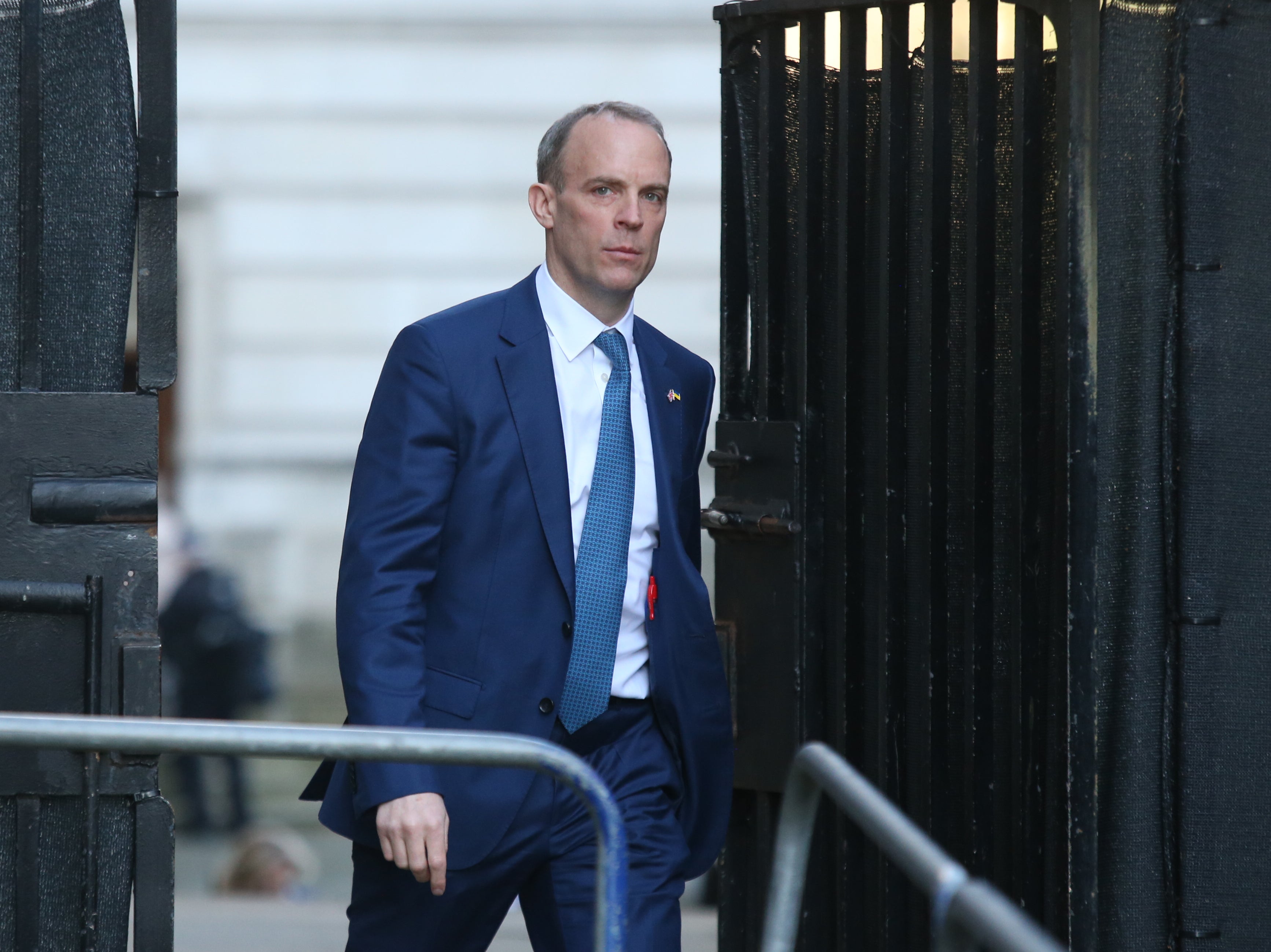Government vows to stop Russian oligarchs ‘abusing’ British courts
Dominic Raab said the government was ‘taking action’ to end the ‘bullying’ to ‘protect our free press’

Your support helps us to tell the story
From reproductive rights to climate change to Big Tech, The Independent is on the ground when the story is developing. Whether it's investigating the financials of Elon Musk's pro-Trump PAC or producing our latest documentary, 'The A Word', which shines a light on the American women fighting for reproductive rights, we know how important it is to parse out the facts from the messaging.
At such a critical moment in US history, we need reporters on the ground. Your donation allows us to keep sending journalists to speak to both sides of the story.
The Independent is trusted by Americans across the entire political spectrum. And unlike many other quality news outlets, we choose not to lock Americans out of our reporting and analysis with paywalls. We believe quality journalism should be available to everyone, paid for by those who can afford it.
Your support makes all the difference.The government has vowed to stop Russian oligarchs “abusing” the courts to silence critics with a series of reforms to protect free speech.
Prime Minister Boris Johnson promised to tackle what he described as the “chilling effect” of a “new kind of lawfare” being used by the super-rich who can afford to threaten legal action against journalists trying to expose wrongdoing.
Justice secretary Dominic Raab, who confirmed earlier this month he would be bringing forward the proposals, said the government was “taking action” to end the “bullying and protect our free press”.
The Ministry of Justice (MoJ) said wealthy “corrupt elites” and powerful corporations had been “put on notice by the Government” as it set out plans to speed up changes to rules on so-called Strategic Lawsuits Against Public Participation (SLAPPs).
It comes after Labour leader Sir Keir Starmer called on the Prime Minister to fast-track new laws to stop Russian oligarchs using their vast wealth and SLAPPs to avoid sanctions and criticism through the courts.
Mr Johnson said: “The ability of a free press to hold the powerful to account is fundamental to our democracy and as a former journalist I am determined we must never allow criticism to be silenced.
“For the oligarchs and super-rich who can afford these sky-high costs the threat of legal action has become a new kind of lawfare. We must put a stop to its chilling effect.”
Mr Raab said: “The government will not tolerate Russian oligarchs and other corrupt elites abusing British courts to muzzle those who shine a light on their wrongdoing.
“We’re taking action to put an end to this bullying and protect our free press.”
Court checks and tougher laws could be brought in to curb the use of the “controversial” lawsuits which “typically involve wealthy people or large businesses using the threat of endless legal action and associated costs to pressure their opponents under defamation and privacy laws.”
The tactic is “increasingly being used to intimidate journalists, authors and campaigners to stifle legitimate criticism and prevent the publication of critical stories and books”, the MoJ said.
The government has launched a consultation on the plans – which could include updating defamation laws to strengthen the public interest defence available to protect those who publish private information from being sued if it was done for the public good.
For too long the super-rich have got away with abusing the law to bully journalists and undermine media freedom
Ministers, who want to bring in changes as soon as possible, are also considering capping the costs claimants can recover to try to stop people “weaponising the high cost of litigation to stifle free speech”.
They may also be required to prove “actual malice” by a defendant in libel claims as part of a bid to “deter spurious claims”.
Other measures could see courts able to throw out claims seen to be using such tactics early on in proceedings and impose bans, called Civil Restraint Orders, to prevent people from bringing repeated legal challenges.
The move follows news the High Court dismissed a libel claim brought by Kazakh mining giant Eurasian Natural Resources Corporation (ENRC) against Financial Times journalist Tom Burgis about passages in his book Kleptopia: How Dirty Money Is Conquering The World.
Often the purpose of SLAPPs is to “suppress publications without a case ever coming to court and being reported” so ministers will be “assessing the evidence to understand how widespread the problem is before deciding the best course of action”, the MoJ said.
Unions, industry groups and lawyers welcomed the plans.
Michelle Stanistreet, general secretary of the National Union of Journalists, said: “For too long the super-rich have got away with abusing the law to bully journalists and undermine media freedom.”
Dawn Alford, executive director of the Society of Editors, said: “It is essential that laws are strengthened and practical deterrents are put in place to ensure that journalists – as well as campaigners, academics and authors – are able to fulfil their role in keeping the public informed without fear of intimidation or harassment.”
Law Society of England and Wales president I. Stephanie Boyce described the use of SLAPPs as “controversial”, adding: “It is in the public interest that our justice system works for all people regardless of their means and produces fair outcomes.”


